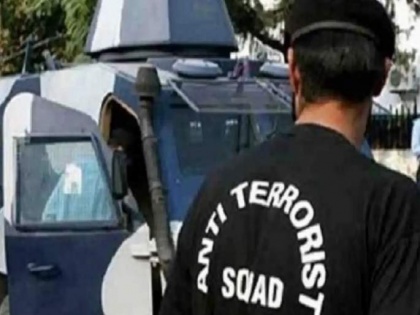Ram-Sita Profile Pics, Honey Traps and Leaks: Shocking Spy Plot Uncovered by Maharashtra ATS
By vishal.singh | Updated: June 6, 2025 11:08 IST2025-06-06T11:02:22+5:302025-06-06T11:08:11+5:30
The Maharashtra Anti-Terrorism Squad (ATS) has uncovered a disturbing revelation in its ongoing investigation into a suspected espionage case ...

Ram-Sita Profile Pics, Honey Traps and Leaks: Shocking Spy Plot Uncovered by Maharashtra ATS
The Maharashtra Anti-Terrorism Squad (ATS) has uncovered a disturbing revelation in its ongoing investigation into a suspected espionage case linked to Pakistan. According to officials, the Pakistani intelligence network not only deployed women operatives for honey trapping but also tried to assimilate into India’s digital environment by using religious symbols as camouflage.
Sources reveal that operatives used profile photos of Lord Ram-Sita and prominent Indian temples on WhatsApp and Telegram accounts to appear culturally familiar and trustworthy. These accounts were also geotagged to Indian religious sites, creating the illusion that they belonged to local individuals.
Also Read: Nepali Nationals Arrested at Airport with Fake Work Visas
Investigating agencies believe this tactic was a calculated strategy to build trust and avoid suspicion. “By blending into India's religious and digital ecosystem, the handlers aimed to penetrate deeper without raising red flags,” said a source familiar with the probe.
In connection with the case, the main accused, Ravi Verma, has been remanded to 14-day judicial custody by a Thane court. Verma is accused of leaking sensitive information related to Indian warships.
The ATS had requested an extension of his remand citing the discovery of new electronic evidence. However, the court denied the plea. Advocate Rupali Shinde, representing Verma, argued that there were inconsistencies in the ATS investigation. “The agency refers to a woman as Preeti Jaiswal, while the woman who contacted my client identified herself as Jaspreet and claimed to be from Delhi or Punjab,” she told the court.
Further examination of Verma’s mobile phone revealed that he had saved the women agents' numbers under innocuous names like ‘Preeti Friend’, ‘Jaspreet College Friend’, ‘Nisha Friend’, and ‘Aakriti Friend’. Investigators believe this might have prevented him from suspecting any wrongdoing.
The ATS suspects that Ravi Verma was not the sole target. The espionage network, allegedly backed by Pakistan, may have used similar tactics across India—employing Indian SIM cards, religious imagery, and social media platforms to lure and manipulate unsuspecting individuals.
Open in app